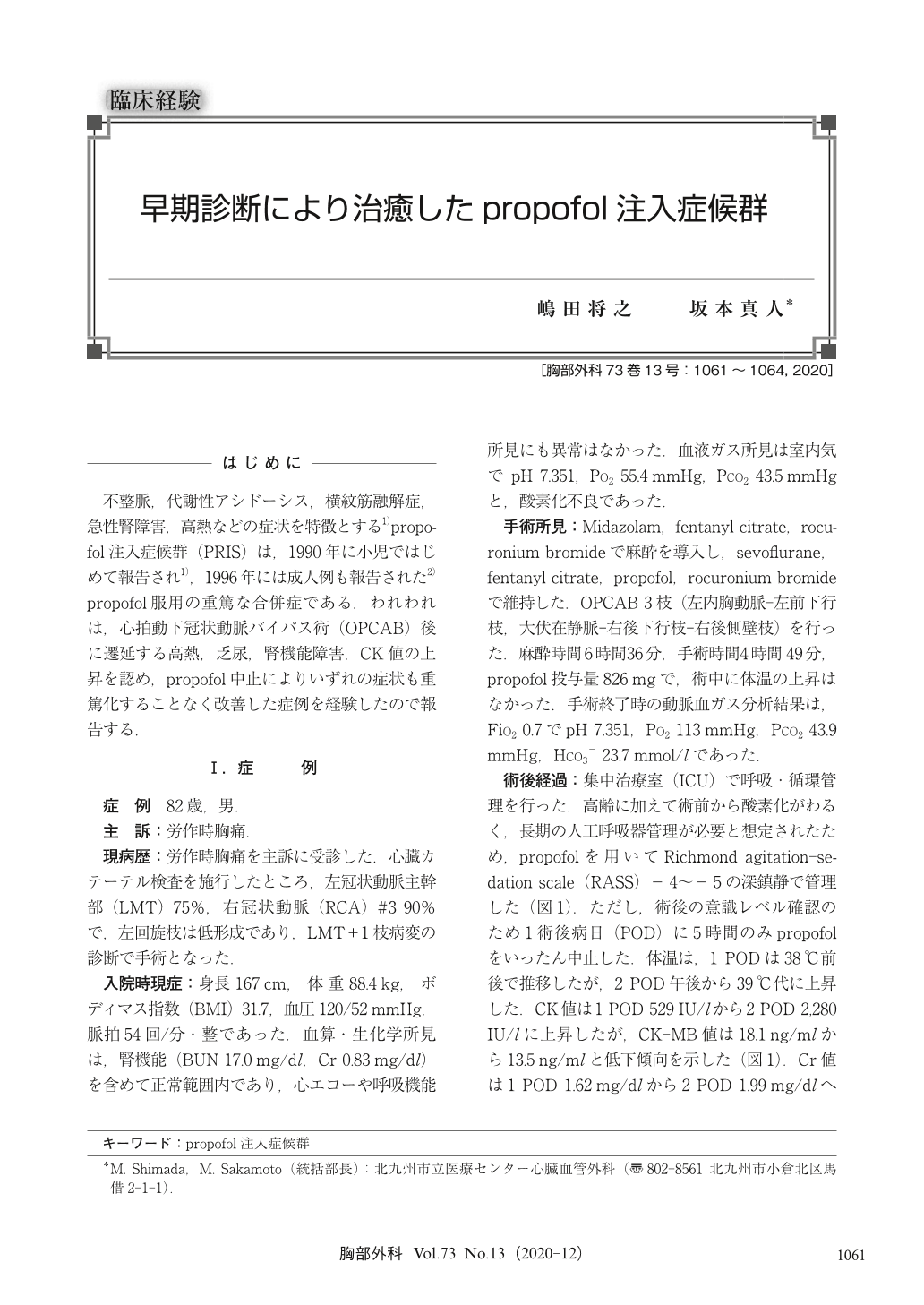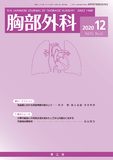Japanese
English
- 有料閲覧
- Abstract 文献概要
- 1ページ目 Look Inside
- 参考文献 Reference
不整脈,代謝性アシドーシス,横紋筋融解症,急性腎障害,高熱などの症状を特徴とする1)propofol注入症候群(PRIS)は,1990年に小児ではじめて報告され1),1996年には成人例も報告された2)propofol服用の重篤な合併症である.われわれは,心拍動下冠状動脈バイパス術(OPCAB)後に遷延する高熱,乏尿,腎機能障害,CK値の上昇を認め,propofol中止によりいずれの症状も重篤化することなく改善した症例を経験したので報告する.
Propofol infusion syndrome (PRIS) is one of the severe complications which occur during continuous venous infusion of propofol, and has a high mortality rate. It is featured by high fever, oliguria, myogloblin urine, acute renal failure, hepatomegaly, fatty liver, and so on. We have experienced a case of PRIS who was saved by prompt changing of sedatives from propofol to midazolam and dexmedetomidine. The patient was an 82-year-old man, who underwent off-pump coronary bypass grafting due to effort angina pectoris. After the operation, he suffered from continuous high fever over 38 ℃, acute renal impairment, and high level of creatine kinase (CK) without CK-MB increment, suggesting PRIS. We promptly changed sedatives from propofol to midazolam and dexmedetomidine, then the patient recuperated from these abnormalities. It is strongly suggested that meticulous observation is necessary during propofol infusion.

© Nankodo Co., Ltd., 2020


